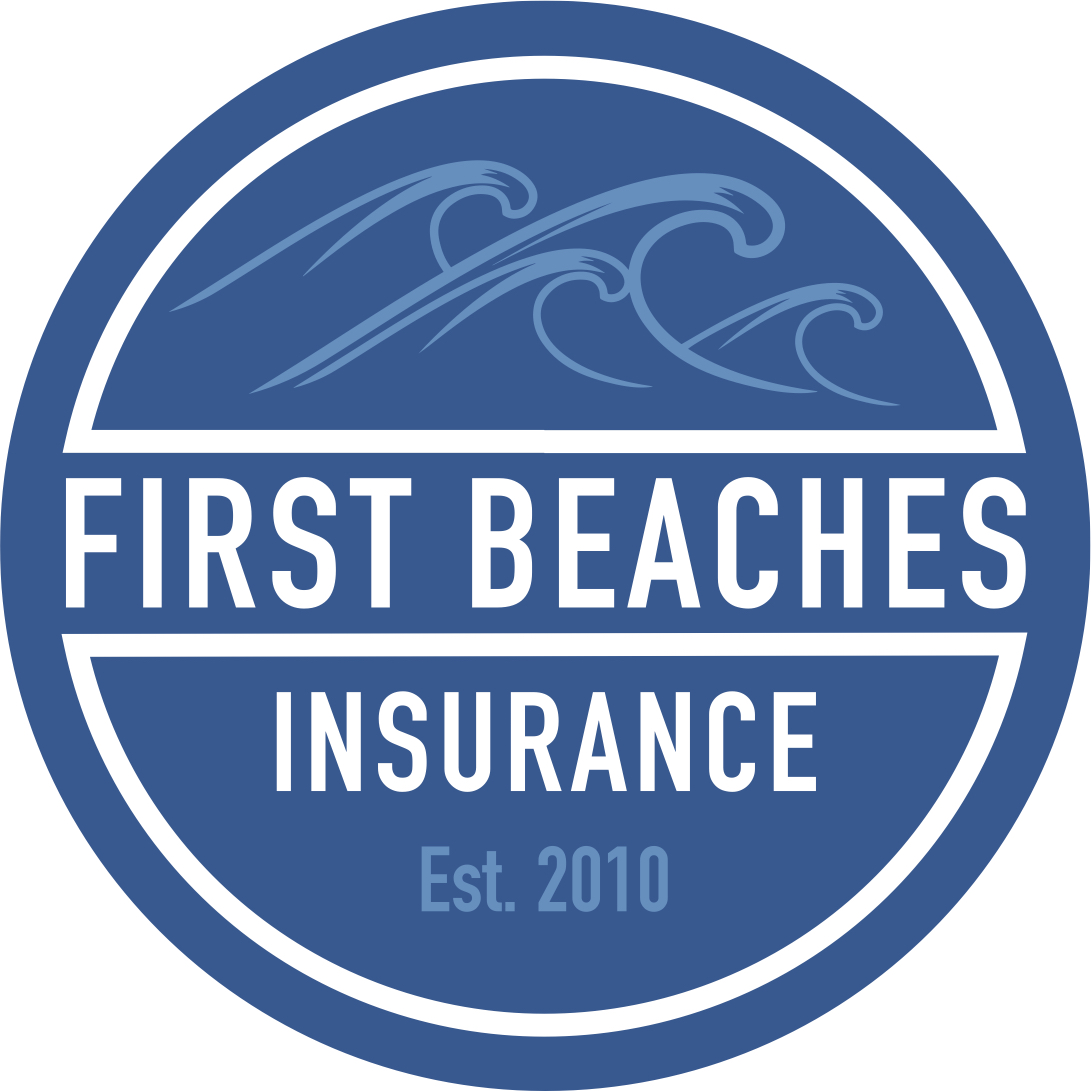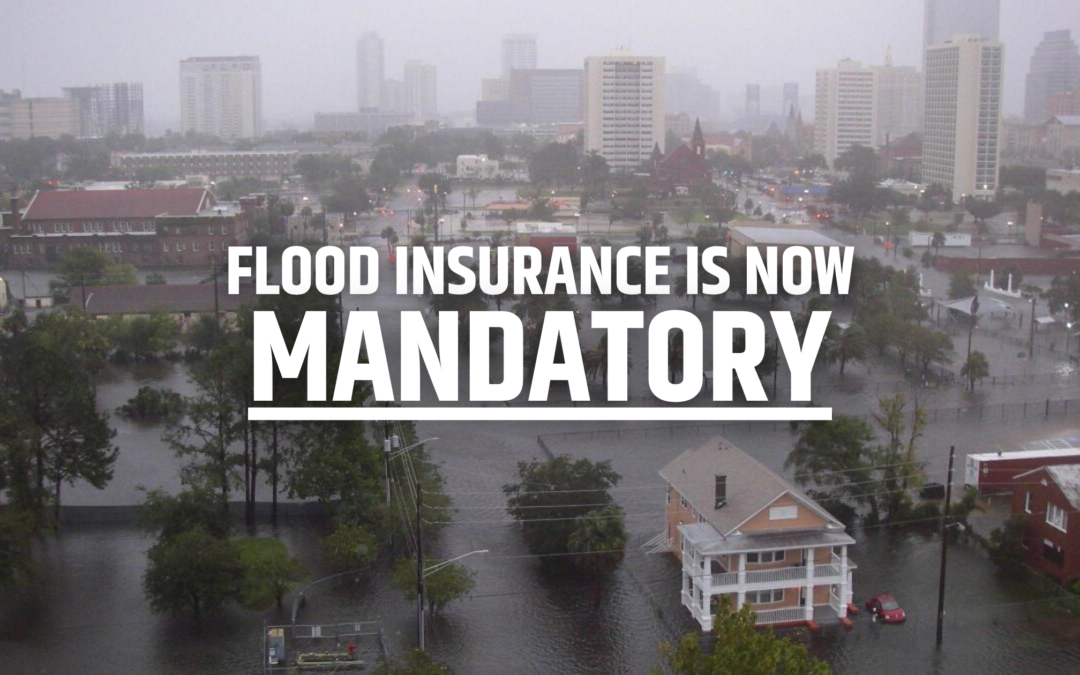If you own a home in Jacksonville Beach or Northeast Florida, big insurance changes are rolling in. Starting in 2024, a new Florida law is phasing in mandatory flood insurance for many homeowners who carry wind coverage through Citizens Property Insurance.
This isn’t just red tape — it’s about protecting your home, wallet, and peace of mind. Here’s what’s changing, why it matters locally, and what you should do now to stay ahead.
What’s Changing: The New Citizens Flood Mandate
In December 2022, the Florida Legislature passed a reform requiring many Citizens wind policies to also include flood coverage. Citizens doesn’t sell flood insurance itself — you’ll need to get it through the NFIP (National Flood Insurance Program) or a private flood insurer.
According to News4Jax, the requirement is phasing in by your home’s rebuild value (“Coverage A”):
-
Jan 1, 2024 – Homes valued at $600,000+
-
Jan 1, 2025 – $500,000+
-
Jan 1, 2026 – $400,000+
-
Jan 1, 2027 – All remaining homes with wind coverage
Exemptions:
-
Policies without wind coverage
-
Condo unit-owner policies
-
Tenant contents-only policies
To renew, homeowners must show proof of flood coverage. Miss the deadline, and your Citizens policy may not renew.
Why This Matters in Jacksonville Beach
Even if your home isn’t in a “high-risk” flood zone, you could still face major flood damage. In fact, FEMA reports that one in four flood claims comes from outside mapped flood zones.
Here’s why Jacksonville Beach homeowners should pay attention:
-
Multiple flood risks: storm surge, sea-level rise, tidal flooding, and heavy rainfall.
-
Local vulnerabilities: low-lying areas and poor drainage make some neighborhoods especially flood-prone.
-
Elevation matters: your first-floor height compared to base flood elevation can significantly change your risk — and your premium.
Bottom line: the flood insurance mandate isn’t just compliance. It’s about being realistic with the risks that come with living at the beach. You can also view Jacksonville’s flood protection programs and maps. The city participates in FEMA’s Community Rating System (CRS), which provides local policyholders with a 10–20% discount on flood insurance premiums. Learn more here.
NFIP vs. Private Flood Insurance: What’s the Difference?
When it comes to meeting the new requirement, you’ll have two options.
NFIP (National Flood Insurance Program)
Pros:
-
Backed by the federal government and widely available.
-
Standardized coverage with predictable terms.
-
Familiar and straightforward for many homeowners.
Limitations:
-
Coverage caps: $250,000 for structure and $100,000 for contents.
-
30-day waiting period before coverage kicks in.
-
Less flexibility for extra features or higher-value homes.
Private Flood Insurance
Pros:
-
Higher coverage limits and more customizable policies.
-
Some carriers offer faster claims and shorter waiting periods.
-
Can include extras like “loss of use” coverage.
Considerations:
-
Stricter underwriting (may require elevation certificates or review of past claims).
-
Availability varies by region and provider.
-
Policies differ widely — it’s important to read the fine print.
👉 Best approach: Get quotes from both NFIP and private insurers for your specific property, compare coverage and exclusions, and see which makes the most sense for your budget and risk profile.
What You Should Do Now
Don’t wait until renewal sneaks up on you. Here’s your action plan:
-
Check your rebuild value (Coverage A): This determines when the mandate applies to you.
-
Know your flood zone & elevation: Use FEMA maps and city records — Jacksonville Beach keeps elevation certificates dating back to 1989.
-
Request quotes early: Compare NFIP and private policies side by side.
-
Make sure coverage matches requirements: Your flood limits need to align with your Citizens dwelling coverage.
-
Take mitigation steps: Elevating HVAC, installing flood vents, or improving yard grading can reduce risk and possibly lower premiums.
-
Submit proof of coverage at renewal: Without it, Citizens may deny your policy renewal.
-
Review annually: Flood maps, premiums, and rules can change.
Why Work with First Beaches Insurance
Flood insurance is complicated — but you don’t have to navigate it alone. At First Beaches Insurance, we:
-
Run NFIP + private comparisons tailored to your property.
-
Help you interpret flood maps and elevation data.
-
Monitor changes in rules and rates so you’re never caught off guard.
-
Guide you on mitigation strategies that can lower your premiums.
-
Advocate for you when it comes to claims and renewals.
We’re here to make sure your coverage is not just compliant, but truly protective.
FAQs
Do I need flood insurance if I’m not in a flood zone?
Yes. If you carry Citizens wind coverage, you may still be required to add flood insurance based on your home’s value — even outside flood zones.
Can I buy flood insurance right before a storm?
No. NFIP policies have a 30-day waiting period, and many private policies also impose waiting times.
Does flood insurance replace my homeowners or wind policy?
No. It works alongside your other coverage, protecting against flood damage that’s excluded from standard homeowners insurance.
What happens if I don’t comply?
Citizens may refuse to renew your policy, forcing you into costlier or less favorable coverage options.
Final Thoughts
The new flood mandate is more than a legal requirement — it’s a reminder of how vulnerable coastal living can be. For Jacksonville Beach homeowners, getting the right flood insurance is about peace of mind as much as compliance. For more information on the state’s mandate, check out this News4Jax article.
📞 Don’t wait until renewal. Call First Beaches Insurance today and we’ll:
-
Confirm your timeline
-
Compare NFIP and private quotes
-
Help interpret elevation data
-
Recommend risk-reducing strategies
-
Make sure you’re covered well before deadlines
Flood insurance doesn’t have to feel like a burden — with the right plan, it’s your safeguard.

